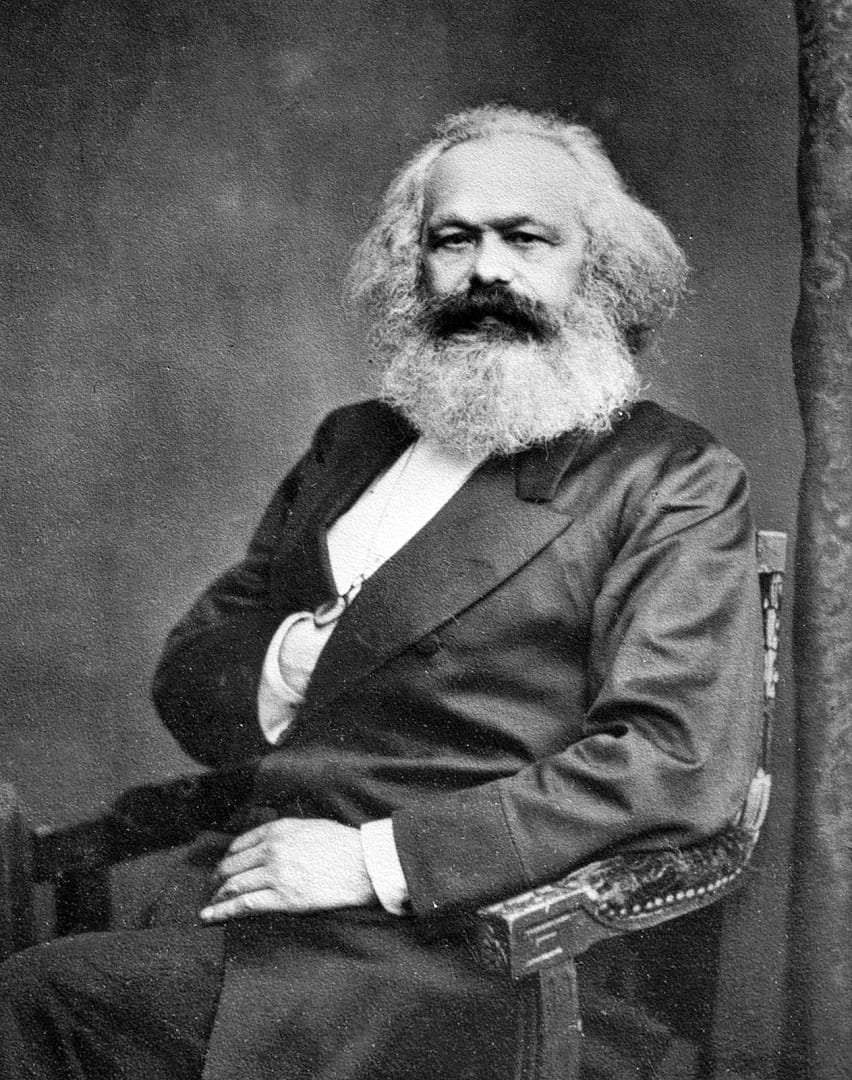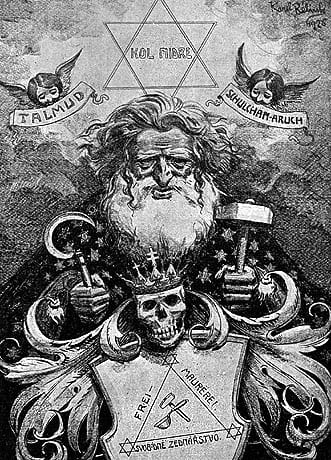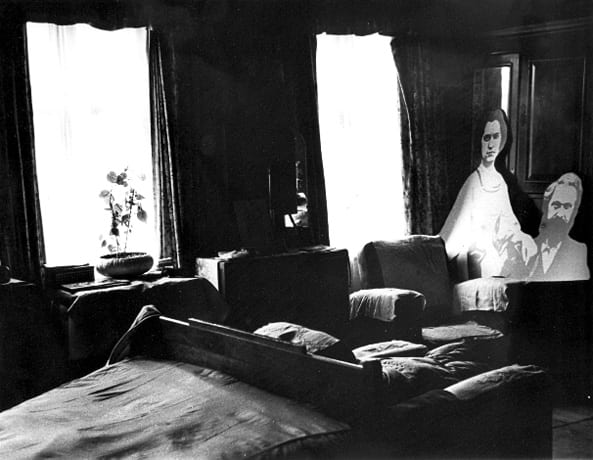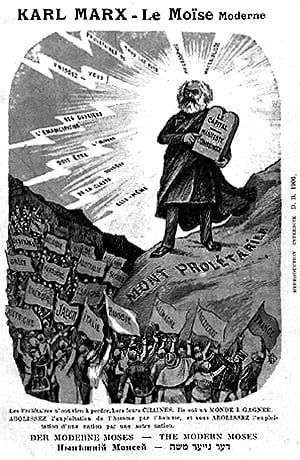Born in 1825, the German scholar Ferdinand Lassalle was a bright economist, advocate of the “Iron Law of Wages”, who was highly accomplished: one of the founders of the modern political party concept, of the leaders of the German labor movement, and founder of the SPD, the Social Democrat party in Germany.
One unfortunate personal detail got in his way, though: he was circumcised. And to be circumcised in 19th century Germany was unforgiveable.
Let us now “enjoy” this heartwarming description of Lassalle from 1862: “It is now clear, from both the shape of his head and the pattern of his hair growth, that he (Lassalle) either descends from the blacks who accompanied Moses in his escape from Egypt, or his mother or paternal grandmother blended with a negro… you see, you cannot expect anything special from this mixture of Jewish and German on the one hand, and one specific negro race on the other. That guy’s constant demands are also typical of the negroes.”
You may dismiss this as just another racist text, that was not uncommon in the Anti-Semite atmosphere in 19th century Germany. The real surprise hits us when we learn who wrote this description – no other than the worker’s prince, the defender of the poor, smasher of the bourgeoisie’s chains – Karl “Helevi” Marx.

Karl Marx, born in Trier, then Prussia and now Germany, 202 years ago, was on his father’s side grandson of rabbi Shmuel son of Mordechai Halevi, who served as the chief rabbi of the town. On his mother’s side he was descendant of a Dutch dynasty of rabbis. Marx was a 100% Jew whose father, Herschl Halevi, was forced to convert in order to make a living as a lawyer, therefore he also changed his last name to Marx, and the rest is history.
We need to challenge then: how can a Jew, even a converted Jew, could produce such a hateful text against a fellow Jew?
Some might claim for the classic Jewish self-disgust, experienced by many Jews who converted, adopting also the Anti-Semitic consensus in their surrounding society. Others may argue that the strained rivalry between Marx and Lassalle regarding the interpretation of the proletarian revolution drove Marx to that malicious remark, and that Marx was in fact not a Jew hater, which settles with Marx’ restraint of religion in general, as well as the concept of national states.

In an attempt to track back Marx’ true feelings regarding his Jewish origin, we read his “On the Jewish Question” from 1844, published as a reaction to processes of liberalization occurred in the Prussian areas, while one central public issue was whether or not the Jews should be granted full equal rights.
It’s hard not to twitch while reading extracts from this work, such as “What is the secular ritual of the Jew? The commerce. And the secular God? The capital. We perceive Judaism as a definite anti-social element.” And then he cruelly concludes: “The ultimate meaning of the emancipation of the Jews is the liberation of humanity from Judaism.”
Chilling as it may sound, what surprises us is that while Marx slanders the Jews, he urges the authorities to grant them full civil rights. How come?
In order to settle this contradiction, it is crucial to realize that at that time, what we consider an old caricature – the greedy Jewish moneylenders – was seen by most people as solid truth. The very word for Jew in everyday German use was judentum – which refers to commerce.
Marx’ supporters wished to acquit him from his critics’ accusation of Anti-Semitism. According to the eccentric genius, they said, the Jews were not to blame, but rather “Judaism” as a principle.

According to Marx, the expansion of secularization during the 19th century resulted in a dramatic change in the image of the Jews. After shedding their religious identity, the stereotype of greed and deceptiveness was all that was left. Because for centuries, tragically the Jews were pushed aside and forced to make their living only from the most despised moneylending occupations. That’s how Jewishness became the equivalent for greed. And by writing that “humanity must be liberated from Judaism”, his defenders assert, he meant not the Jews but the abstract concept of Jewishness, identified in his mind with the corrupting greed.
To support his claim, a most emphatic article towards Jews that Marx published in the New York Daily Tribune, while in exile in London (1854 c.) is often used: Marx was covering the Crimean War between the Ottoman and the Russian empires, and wrote about the Jews in Jerusalem: “Nothing compares to the misery and poverty of the Jews in Jerusalem, who reside in the Jewish quarter, between Mount Zion and Mount Moria, where all their synagogues are also situated. They are a constant target for Muslim oppression, Greek offensives and Latin persecutions. They only survive due to donation from the fellow Jews in Europe. They are not natives of Jerusalem, rather arrived from various places, drawn to the city for its religious magnetism. They suffer and pray, while looking up to Mount Moria, where the temple used to stand, daring not to approach it. They shed their tears on their destruction and exile. ”
So what was Marx’ real attitude towards the Jews? No doubt, the latter sympathetic extract about his suffering brothers, makes it even harder to single out one clear answer. Like it or not, this is what complex people are all about.
